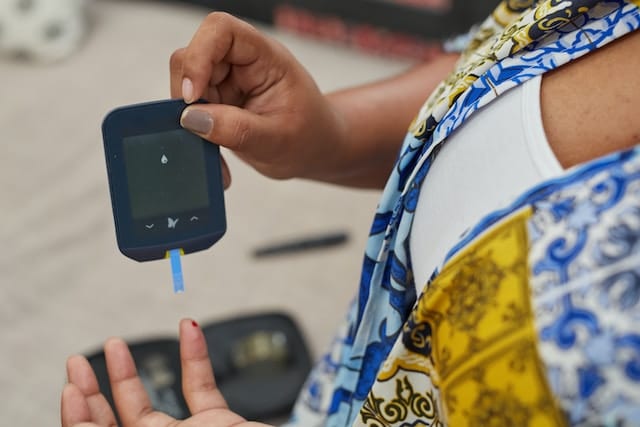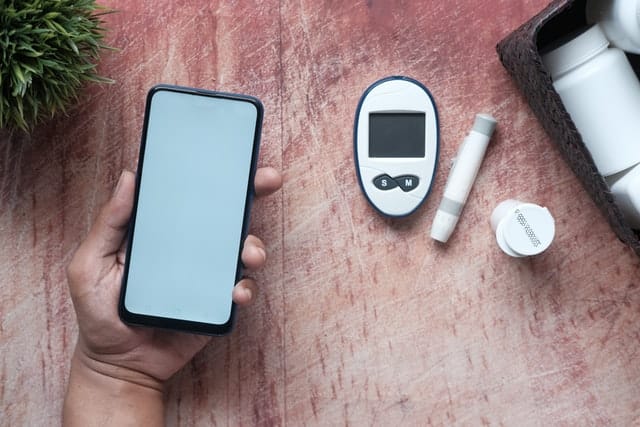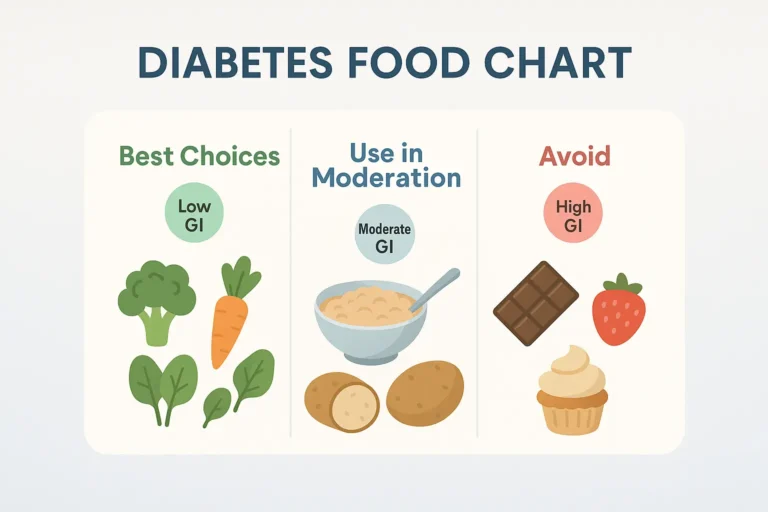The Connection Between Diabetes Management and In-Home Care Services
What is the connection between diabetes management and In-Home care services?
- Diabetes care does not only involve periodic visits to the doctor; learn how in-home care services can help you meet your specific needs.
- It ranges from monitoring blood sugar to planning meals and from the clinic to real life.
- Are you ready to learn more about how home care can assist with diabetes? Welcome to the future—where you will be healthier and more independent. Discover how in this guide.
Diabetes is a lifelong disease that needs the patient to stay alert to avoid complications, and everyone should enjoy a good quality of life. For those who have other problems in their lives, such as older people with disabilities or those with different sicknesses, diabetes management is quite demanding. This is where the concept of in-home respite care comes into play. Such services are very helpful in managing medication, preparing meals for the patient, and educating them on checking their blood sugar levels. In what ways can such care enhance diabetes results? This article explores how diabetes management and in-home care are interconnected and how the latter leads to better health and less stress.
1. Understanding the Challenges of Diabetes Management
Diabetes requires a very organized approach to managing the condition because it affects several dimensions of the human body. Some important facets of this condition demand fine-grained synchronization, and if something goes slightly wrong, the impact can be critical. Success in keeping with the intended goals greatly relies on addressing certain challenges that patients usually face, such as schedule management or other illnesses. These difficulties mean that diabetic patients must be provided with comprehensive support to ensure instant precision in managing this disease.
One of the greatest challenges that people with diabetes face is reliably adhering to healthy lifestyle changes. Other measures of control can also be extremely demanding for patients, including regular meal planning and structured physical activity. External conditions, or the limited ability to travel or gain professional consultation, will affect individuals’ capacity to maintain positive habits and create gaps in general healthcare. Furthermore, elderly or disabled persons require special consideration even when implementing these strategies.
In addition, stress can be a significant factor that makes it hard to control this chronic condition in the first place. The psychological burden of diabetes self-care may lead to stress or anxiety, thus affecting the patient’s practice. It also means that a set of solutions has to be efficient in physical care and present options for emotional care that target the former issue mentioned, which is a comprehensive approach to overcoming these challenges.
2. What Are In-Home Care Services?
Homewatch CareGivers offers personalized care tailored to each client, delivered in the comfort of their own home. Provided by professional and experienced caregivers and healthcare givers offer these services. They encompass the patient’s medical and nonmedical needs to promote their quality of life, especially for those with chronic diseases such as diabetes.
Another important aspect of in-home care is health check-ups. The caregivers observe the patient’s vital signs and monitor the frequency of such symptoms to seek medical attention. This is particularly helpful for those with chronic diseases such as diabetes since healthcare providers closely monitor the risks and effectively manage the disease.
Personalized care goes beyond just medical needs; it also encompasses basic needs in daily life. Help with feeding, toileting, bathing, dressing, and walking prevents falls and keeps the patient comfortable and more dignified. Furthermore, personalized meal delivery services that reflect an individual’s dietary requirements allow people to follow nutritional recommendations for their health.
Home care services are particularly important for older people or those who are alone or have difficulties with movement. It always delivers the care needed to help individuals maintain their health while giving comfort to families.
3. The Role of In-home Care in Blood Sugar Monitoring
Management of the blood sugar level is crucial for the avoidance of diabetes complications and the maintenance of stable glucose concentrations. Home care services are very valuable for accurate and frequent check-ups that allow for the necessary changes in diet, physical activity, or drugs. This professional support gives patients the assurance they need in diabetes self-care management.
Professional caregivers use sophisticated equipment and methods to get as precise as possible glucose level results. They also inform the patient on the correct application of the monitoring equipment so that the patient can independently cope when needed. This guidance helps eliminate mistakes and take a preventive attitude to diabetes treatment.
Furthermore, caregivers keep up-to-date logs on when and what glucose levels they take. This provides useful information regarding recognizing changes or anomalies in the readings. Healthcare providers access this information to perform appropriate medical management and avert or reduce high blood sugar health complications.
4. Personalized Meal Planning for Diabetic Patients
Nutritional management is one of the cornerstones of diabetes management, and home health care services address the need to prepare proper diets. Caretakers work with other medical practitioners to formulate appropriate nutritional care plans, considering patients’ needs for healthy, practical, and realistic meals. Many patients find that this individualized approach fosters improved glycemic control and general health.
As for home care services, they focus on preparing meals that meet desired nutritional objectives, such as low glycemic index foods. Healthy meals are already designed with the right portions of carbohydrates, proteins, and healthy fats to avoid shocking glucose spikes. Providers modify them in line with the patient’s lifestyle, food choices, and cultural eating habits, making compliance easier and enjoyable.
In addition, caregivers are responsible for preparing meals and serving them in a timely serving, and there are no complications or errors. This makes patients stay within the right portion size and take their meals at the right time, thus reducing the risks and increasing the chances of proper diabetes management.
5. Medication Adherence: A Key Benefit of In-Home Care
Good diabetes control mainly depends on the right drug intake to ensure that the patient’s blood sugar level is well-balanced and has no adverse effects. These services help the client to take their medications as required and thus prevent missing or taking the wrong amount of medication. This support creates a schedule that allows patients to handle their condition in the best way possible.
Family carers arrange medicines logically, labeling and locating them to make access easy. All of them set times specific to the needs of the patient’s treatment, minimizing the likelihood of misremembering. Administering medications in a regular pattern effectively prevents challenges; therefore, simplifying medication schedules is important to support patients in achieving normal glucose levels.
Besides scheduling, the caregivers always observe the patients to identify possible side effects or adverse reactions. This way, when problems are present, healthcare providers can institute solutions promptly. Doing so offers a well-rounded approach that increases safety, outcomes, and patient confidence in using medicines.
6. Encouraging Physical Activity for Better Health
Integrating physical activity into the routine is vital in diabetic care because it strengthens insulin responsiveness and regulates blood glucose concentration. Caregivers attend to the patient’s will and assist them in incorporating exercise into their lives sufficiently, hence the convenience of in-home care services. This way, all physical activities are compatible with the health state of the patient as well as their abilities.
Exercise caregivers must formulate exercises that consider a patient’s disability and preferences. Seniors can safely engage in light walking, guided stretching exercises, or taking balance exercises, among others. These routines also stress repetition and slow progress, ensuring the patient does not strain their body or muscles.
In addition to helping those they are caring for with exercise, caregivers encourage and spend time with their wards. This support also eliminates attitudes or discomfort behaviors, hence increasing the role they play in physical activities that can manage diabetes and supplement the overall health of a person.
7. Managing Diabetes-Related Complications with In-Home Care
It is important to note that the complications of diabetes are extremely grave, ranging from heart disease, neuropathy, and kidney disease, thereby making it crucial to monitor the affected individuals closely to reduce risk. In-home care services are essential because they offer round-the-clock health assessments and check-ups to ensure any signs of deterioration are noticed early and attended to.
The caregivers continually assess the patient’s status to identify any shifts in the client’s health status that may indicate developing problems. They ensure that they make early appointments and follow through on treatments by maintaining records of their patients and doctors. This is because minor issues do not get a chance to compound into worse situations.
Diabetes-related care is also an important aspect of home care, including wound care for diabetic foot ulcers, which is another important service. Caregivers monitor, clean, and dress the wounds properly, reducing the chances of complications such as infection or worsening of the wound. This all-encompassing care improves the patient’s health and assists with preventing or controlling the complications of diabetes.
8. The Psychological Support Provided by In-Home Care Services
The care of diabetes does not only involve physical aspects since the condition can cause stress, anxiety, or depression, among other emotional problems. In-home care services solve the above psychological burdens by providing a caring environment. Hence, caregivers consistently encourage the patient and help them manage their condition with less anxiety and stress.
Caregivers work on building a positive attitude through encouraging self-care and setting up small and realistic goals. This approach enables the patient to return to the driver’s seat and feel less helpless. Furthermore, caregivers ensure clients are social by arranging activities that make them happy and help reduce loneliness.
This model of care provisions guarantees that patients benefit from total care for their emotions and the body. Through psychological support for diabetes care at home, the patient’s quality of life and coping potential greatly improve.
9. Reducing Hospital Readmissions Through In-Home Care
A leading indicator of diabetes complications is the repeated hospitalization of a patient. However, engaging in in-home care services prevents this problem. To some extent, caregivers are involved in the aggressive practice of following the patients’ status to identify early signs of possible complications, including, for example, infections or problems with wounds. This makes it easy for clinicians to treat the conditions before they worsen; otherwise, patients are hospitalized.
Post-discharge care also plays an important part in home care as it monitors patient adherence to a treatment plan. They assist with medications and diet, ensuring treatment compliance through offering rehabilitation support and reducing complications of the recovery process. Also, giving clear instructions and constant teaching to patient and their relatives contribute to better compliance with discipline in disease management at home.
This is because in-home care enhances patients’ quality of life by reducing the need for hospital visits. It reduces the number of costly and emotionally tiring visits to the hospital, presenting a feasible solution for managing diabetes in the long run.
10. The Reasons Why Families Need In-Home Care Services
The services of in-home care also benefit patients, especially their families. They help patients get the proper professional attention they require, removing some burdens of managing complex healthcare from family members. This assurance ensures that families are free from the worries and stress of caring for their sick loved ones, and thus, they can attend to other duties.
Furthermore, caregivers act as an intermediate between the two parties and help healthcare providers know how the patient is doing. This form of open communication helps in the continuum of care, whereby families take part in the care plans for their loved ones without being overburdened. In-home care also relieves the emotional burden on the family members since they will have peace of mind and a strong support system for the patient.
11. Choosing the Right In-Home Care Provider for Your Loved One
This paper emphasizes the importance of choosing an in-home care provider for diabetes care. Ensure that the professionals have relevant training in diabetes care, including in aspects such as glucose control, diet management, and drug management. They are professionals who provide proper and secure service appropriate for diabetic patients.
Check how many services are offered to cover all the client’s needs, including health care, help with personal activities, and individualized care plans that the client adjusts to their lifestyle. Check the provider’s credibility by verifying the client’s reviews and the recommendations that they have received from other professionals. A good and credible provider can greatly improve diabetes care and self-aptitude.
12. The Future of Diabetes Management with In-Home Care
It was evident that new developments in wearable health technology are transforming the diabetes care service industry within the home environment. Treatments available in the form of smart insulin pens and artificial pancreas systems also make the more accurate control of insulin and blood glucose possible. These tools, together with relevant care, help to provide continuous monitoring and allow the proper decisions to be made that do not cause complications.
Moreover, remote monitoring systems with analysis features included are taking the level of diabetes care to a new level. These systems detect changes in patterns of glucose levels and give a signal for possible diseases or some health issues. Such a preventive strategy helps patients manage diabetes more efficiently, effectively avoiding emergencies and giving people a healthier, safer way to tackle chronic disease.
Conclusion
Moving beyond the practicality, which is important, there must be a correlation between diabetes treatment and in-home care services to achieve better, happier lives. These services – where personalized – revolutionize how a person deals with their condition, providing reassurance and autonomy. Can you imagine a world where controlling diabetes doesn’t seem daunting and overwhelming, where you feel in control? That’s a great step forward, right? Consider home care services if you or a loved one are ready for improved health and a healthier future. Reach out today to discover how these services can help transform your path to health and true sustainability.








Leave a Reply